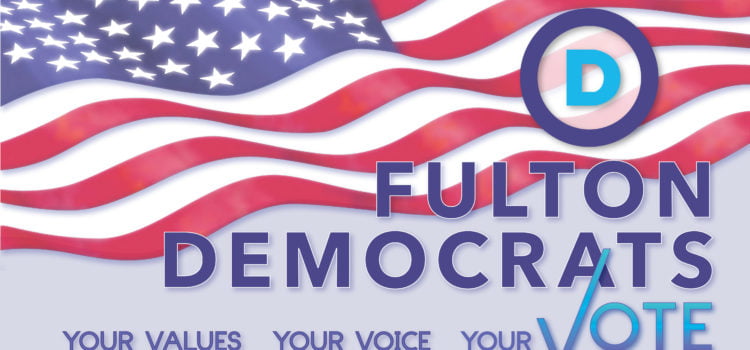Proposed Constitutional Amendments
- Authorizes dedication of fees and taxes to their intended purposes by general state law.
House Resolution 164
Act No 597
“Shall the Constitution of Georgia be amended so as to authorize the General Assembly to dedicate revenues derived from fees or taxes to the public purpose for which such fees or taxes were intended?”
Fulton County Democratic Party Committee recommends: Yes.
From the Democratic Party of Georgia: This question asks if you want to give the Georgia legislature authority to use tax revenue to just go to the public purpose for which the money was intended, instead of an all-purpose fund. Right now, the government can use money dedicated to one purpose, like cleaning up tire dumps and blight, and put it towards broader use. Environmental advocates support this bill because since 1990, while Georgia has raised millions of dollars to clean up specific waste, roughly 40% of those dollars have gone to other purposes. Critics of the amendment say it would remove flexibility for how the government can use money.
However, there are conditions for the amendment — dedicated funding could not exceed 1% of the total state revenues from the previous year, and in an emergency, the governor and General Assembly would have the ability to temporarily suspend dedicated funds.
2. Waives state and local sovereign immunity for violation of state laws, state and federal constitutions.
House Resolution 1023
Act No 596
“Shall the Constitution of Georgia be amended to waive sovereign immunity and allow the people of Georgia to petition the superior court for relief from governmental acts done outside the scope of lawful authority or which violate the laws of this state, the Constitution of Georgia, or the Constitution of the United States?”
FCPDC recommends: Yes.
From the DPG: This question asks whether Georgians should have the right to sue local and state governments as well as elected officials and public employees in their official capacities to challenge laws that may be unconstitutional. A 2017 ruling by the Georgia Supreme Court largely eliminated the ability of Georgians to challenge the constitutionality of laws without the government’s permission. A bill seeking to restore this ability to Georgians was vetoed by Governor Deal and Governor Kemp, who cited concerns regarding lawsuits from people in mental health facilities and lawsuits involving breach of contract against government employees and officials.
Statewide Referendum
A. Establishes a tax exemption for certain real property owned by charities.
House Bill 344
Act No 149
“Shall the Act be approved which provides an exemption from ad valorem taxes for all real property owned by a purely public charity, if such charity is exempt from taxation under Section 501(c)(3) of the federal Internal Revenue Code and such real property is held exclusively for the purpose of building or repairing single-family homes to be financed by such charity to individuals using loans that shall not bear interest?”
FCPDC recommends: Yes
From the DPG: This question asks if 501(c)(3) organizations should be exempt from property taxes on property that is in their inventory that is intended for building or repairing single family homes. For example, if this were to pass, Habitat for Humanity Georgia would be exempt from property tax on the vacant lots they own for future building purposes.
